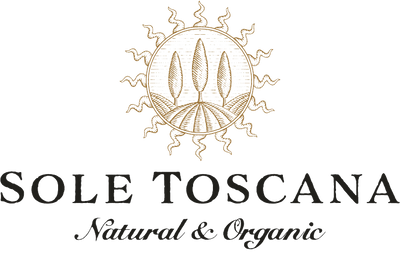Allow us to introduce you to the latest dental hygiene trend (if you haven't heard of it already). It's called oil pulling. Many studies have shown positive results with this practice, but there is much controversy about whether it works. Scientists differ on the benefits of this method.
What is oil pulling?
The practice of oil pulling is an ancient Ayurvedic medicine healing ritual, which was used as a natural method for preventing oral diseases.
It entails rinsing your mouth with oil to brighten the teeth and maintain proper dental hygiene. The oil pulls out harmful bacteria from the walls of the oral cavity.
How it works
Oil pulling's main strength is the detoxifying effect. Our mouths harbor billions of viruses, bacteria, fungi, and other parasites, such as Candida and Streptococcus.
These kinds of germs and their toxic waste products cause gum disease, tooth decay, and many other health problems like arthritis and heart disease. Our bodies continuously fight these germs and toxins.
When our immune system is overworked by poor diet, environmental stressors, and excessive stress, these organisms can spread in the body. They can cause secondary infections and chronic inflammation, which lead to various health problems.
WHAT'S HAPPENING WHEN YOU OIL PULL
When you swish oil in your mouth, it attracts the fatty membranes of the microorganisms. The unwanted bacteria is sucked out of all areas of your mouth then you spit out the oil.
When to oil pull
Healthcare professionals recommend that you do it daily, first thing in the morning. If you feel you need a boost in your dental hygiene, you may oil pull three times daily (before every meal).
Benefits of this practice
• Freshens breath
• Decreases tooth sensitivity
• Reduces plaque build-up
• Helps prevent cavities and gingivitis
• Whitens teeth
• A potential remedy for bleeding gums
• Helps prevent dryness of the lips, mouth, and throat
• Strengthens the jaws and helps alleviate soreness and pain
• Providing relief from migraines, arthritis, allergies, PMS, sinus congestion, insomnia, and chronic illnesses
• Helps prevent oral infections and inflammation
Aside from dental hygiene, oil pulling purportedly has a variety of health benefits, including:
- Clearing the skin
- Strengthening the immune system
- Balancing hormones
- Boosting digestion
How to oil pull
1. PLACE THE OIL IN YOUR MOUTH
Put ½ or 1 tablespoon of coconut, sunflower, or sesame oil in your mouth.
Note: Ensure you use cold-pressed and organic oils. Processed oil has a lower quality due to the refinement process. For extra freshness, you may add a few drops of oregano or peppermint oil.
2. SWISH
Swish the oil around your mouth and through your teeth for 10 to 20 minutes. It's weird at first, but with time, you'll become a total pro. Remember not to swallow the oil!
To ease the process, take deep breaths, meditate on the sound of silence, and relax.
3. SPIT
Spit the oil in the trash, in your compost, or outside. Don't spit in the sink to prevent the pipes from clogging. The oil should appear milky white when you spit it out.
4. RINSE
Use warm water to rinse your mouth then spit it out.
5. BRUSH AND FLOSS
Cap it off with brushing your teeth and flossing to remove any residual bacteria.
Does it work?
This practice has been around for thousands of years, but we need more clinical studies to understand its effects on human health.
According to doctors:
Some doctors agree that oil pulling has a significant detoxifying and healing effect, for your mouth, sinuses, and the rest of your body.
This method can reduce the overall toxic burden on your immune system by preventing the spread of harmful microorganisms from your mouth to the rest of your body.
Other researchers found that oil pulling has the same antibacterial effect as conventional mouthwash containing chlorhexidine.
IT CAN'T HURT!
There's no harm in trying swishing oil in your mouth for a few minutes. After all, there are no adverse effects as long as you do it correctly. Try it out for a few weeks and see for yourself. If you don't like it, you can always stop.
Is it safe?
Most sources claim that oil pulling is entirely harmless and much safer than using a conventional mouthwash. However, if you have any concerns, consult your doctor or dentist.
NOTE THAT:
You might experience a detox reaction the first time that you try oil pulling. This reaction may occur as congestion, headaches, or tooth sensitivity. Don't panic; this is normal and typically disappears after a few days.
With love,
The Sole Toscana Beauty Team



